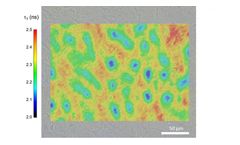Acute Kidney Injury Articles & Analysis: Older
10 articles found
Inflammatory effectors are key cytokines driving major clinical symptoms, like INF-γ inducing fever and hematopoiesis, TNF-α causing fever and depression, and IL-6 contributing to fever, acute kidney injury, and NK cell dysfunction. Inflammation initiation factors involve virus recognition by macrophage pattern receptors, triggering ...
GLP-1 agonists and SGLT-2 inhibitors in combination with or without metformin (as required for glycemic management) have also been recommended by multiple guidelines as appropriate initial treatment for type 2 diabetes patients with atherosclerotic cardiovascular disease (ASCVD) or those at high risk for ASCVD, heart failure and/or chronic kidney disease. So, can the ...
Mice have long served as the species of interest for biomedical research thanks to their genetic, physiological, and anatomical similarity to humans. Mice kidney samples are used to study renal biology covering topics such as acute kidney injury to chronic kidney disease, both of which are extremely useful for ...
Abstract Purpose: We evaluated Galectin-3 (Gal-3) as a potential early biomarker of acute kidney disease (AKI), and the effect of Gal-3 inhibition by modified citrus pectin (P-MCP) on renal ischemia/reperfusion (I/R) induced AKI. ...
This, in turn, compromises a hospital’s antimicrobial stewardship efforts and increases the risk of patients experiencing antibiotic-associated complications like adverse drug events, multidrug-resistant organism infections, C. difficile, and acute kidney injury. Currently, the national benchmark for acceptable contamination rates sits at ...
Abstract Background: Galectin-3 (Gal-3) is a pleiotropic glycan-binding protein shown to be involved in sepsis and acute kidney injury (AKI). However, its role has never been elucidated in sepsis-associated AKI (S-AKI). ...
Background: There are an estimated 300,000 deaths from acute kidney injury (AKI) annually in the U.S.1 A mountain of growing clinical literature has shown that hourly urine output (UO) monitoring may lead to earlier recognition of AKI and better fluid management, thus improving outcomes.2 However, there are multiple obstacles preventing nurses ...
Annotations Acute kidney injury (AKI) is recognized as a potential risk factor for future cardiovascular events, especially heart failure. ...
Google DeepMind recently published a paper in Nature that shared how their predictive algorithm can detect Acute Kidney Injury (AKI) up to 48 hours in advance. Acute Kidney Injury is the biggest problem you have never heard of. In the US, 1 in 5 hospitalized adults gets Acute ...
Annotations Preoperative serum Gal-3 was measured in 1498 patients who underwent coronary artery bypass graft surgery and/or valve. Patients in the highest third of Gal-3 levels had 2.95-greater odds of developing KDIGO Stage 2 or 3 (p < 0.001) and 1.71-increased odds of developing KDIGO Stage 1 (p = 0.001), compared to the lowest third. Elevated preoperative Gal-3 levels significantly ...






